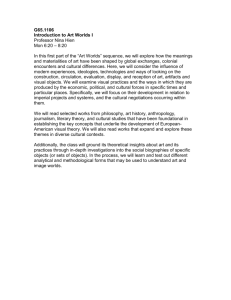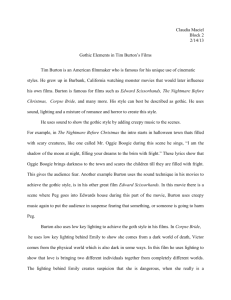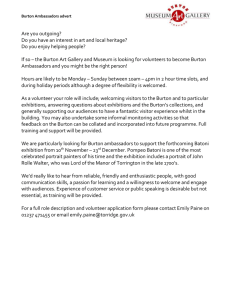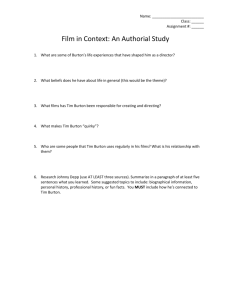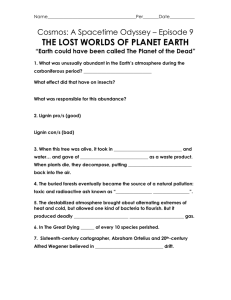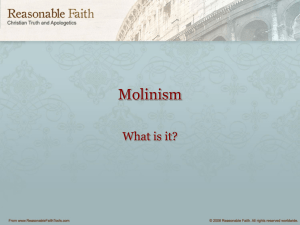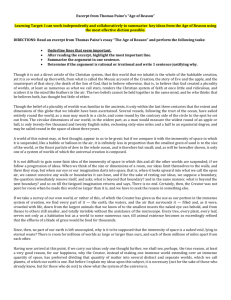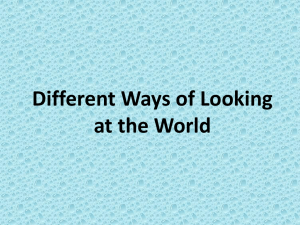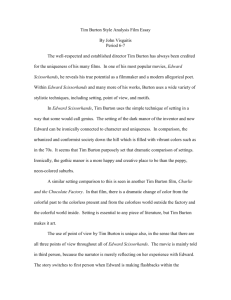Burton Example
advertisement
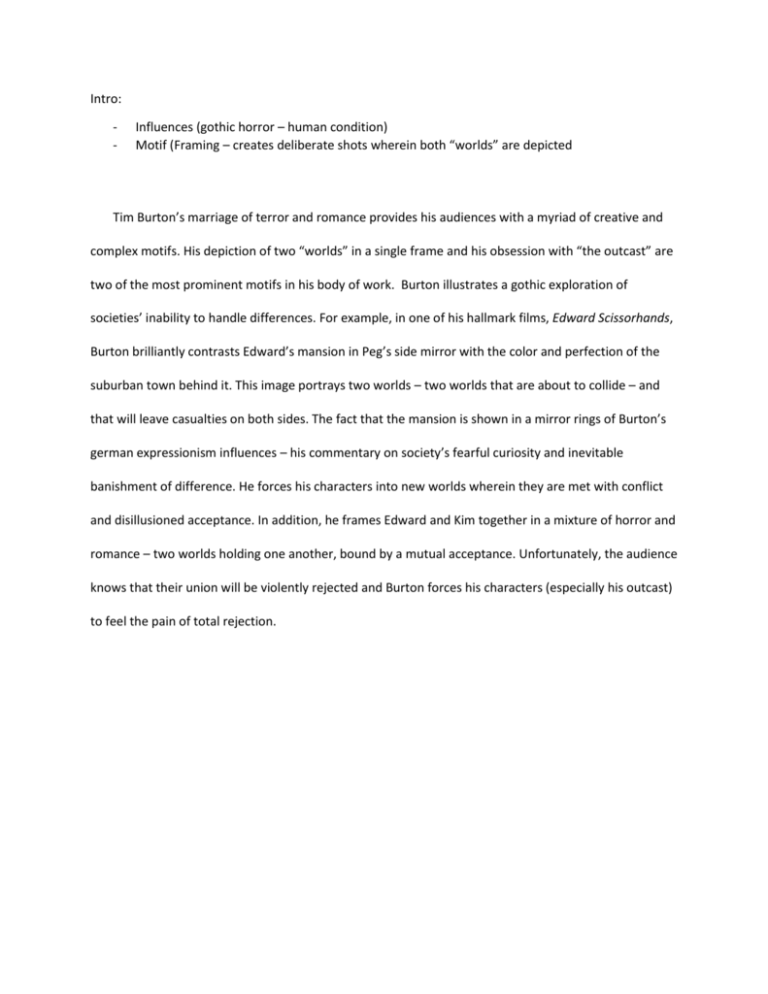
Intro: - Influences (gothic horror – human condition) Motif (Framing – creates deliberate shots wherein both “worlds” are depicted Tim Burton’s marriage of terror and romance provides his audiences with a myriad of creative and complex motifs. His depiction of two “worlds” in a single frame and his obsession with “the outcast” are two of the most prominent motifs in his body of work. Burton illustrates a gothic exploration of societies’ inability to handle differences. For example, in one of his hallmark films, Edward Scissorhands, Burton brilliantly contrasts Edward’s mansion in Peg’s side mirror with the color and perfection of the suburban town behind it. This image portrays two worlds – two worlds that are about to collide – and that will leave casualties on both sides. The fact that the mansion is shown in a mirror rings of Burton’s german expressionism influences – his commentary on society’s fearful curiosity and inevitable banishment of difference. He forces his characters into new worlds wherein they are met with conflict and disillusioned acceptance. In addition, he frames Edward and Kim together in a mixture of horror and romance – two worlds holding one another, bound by a mutual acceptance. Unfortunately, the audience knows that their union will be violently rejected and Burton forces his characters (especially his outcast) to feel the pain of total rejection.
